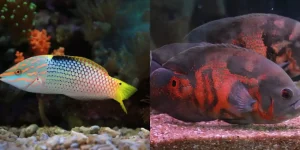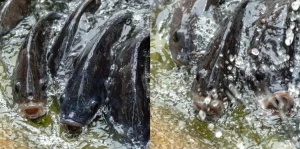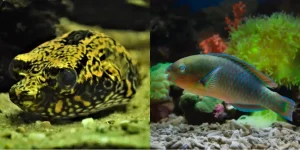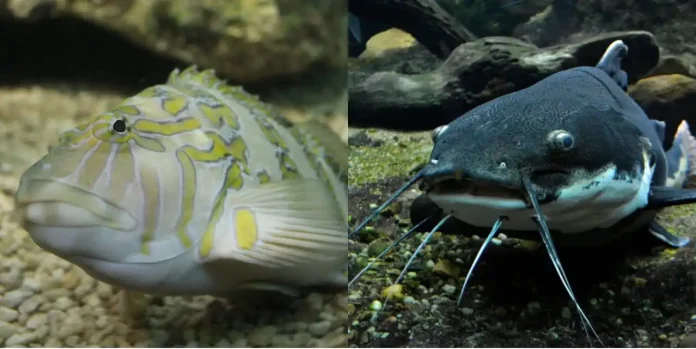Fish are such fascinating creatures. They are in nearly every body of water on Earth. You can find them from the ocean’s depths to the shallowest of streams. One of the most intriguing questions people have is why do fish stay in one spot for long periods. You can observe this behavior across many species of fish.
Let us find out the reasons why they may do so.
Why do fish stay in one spot? Is your fish unwell?
Fish come in a vast array of shapes, sizes, and colors. They have unique personalities and behaviors that can differ from one species to another. Sometimes, fish can exhibit strange behavior, such as,
- Stay in one spot

- Line up

- Stay at the top of the tank

- Stay in the corner of the tank

These behaviors can leave you wondering if something is wrong with them.
Reasons why fish exhibit a strange behavior
Being territorial
Many fish species, such as bass and trout, are fiercely territorial and will defend their chosen spot from other fish. They may stay in one location to guard their territory. They wait for potential rivals to arrive. Some species will even construct nests or spawning beds in a particular area and defend vigorously. These fish will likely leave their spot if a stronger rival forces them or a change in environmental conditions.
Feeding
Many fish species, especially predators, will occupy a location where prey is plentiful. For example, largemouth bass may hang out near a rocky outcropping where small fish are abundant. The bass will stay in that spot, waiting for an opportunity to strike. Similarly, salmon and trout will stay in one spot while feeding on aquatic insects, which may be concentrated in a particular area of a stream or river.
Environmental conditions
Some fish species are adapted to specific environmental conditions and will seek out areas where those conditions are present. For example, fish that require cooler water temperatures may stay in deep pools or shaded regions of a stream or river. Other species may seek out areas with abundant oxygen or where the water is clear and sediment-free.
Staying where comfortable
Do you see fish standing in one spot? This behavior can be pretty common, especially in species like angelfish, which spend much of their time in one location. Fish tend to have a “home base,” where they feel most comfortable in their tank. They stay in one spot to rest, sleep, or watch for predators.
Fish lining up
Why do my fish line up? If you have a school of fish, they will sometimes line up. They will mainly do this during feeding time. This behavior is a survival mechanism. Which the fish use to protect themselves from predators. By swimming together, fish appear larger and more intimidating to potential predators. This makes them less likely to attack.
Fish staying at top of tank what to do?
This behavior can indicate a lack of oxygen or an ammonia buildup in the water. Fish need oxygen to breathe. Sometimes if the water is not oxygenated enough, it will stay at the top of the tank to get more air. An ammonia buildup can be caused by overfeeding or inadequate filtration. This is harmful to the fish. What can you do if this happens?
Check the water quality regularly and ensure that you aerate the tank appropriately.
Are your fish rallying?
If the fish stay in the corner of the tank, they may be stressed or lack hiding places. Fish need places to hide. They make them feel secure and protected. They can remain in the tank’s corner to feel safer if there are not enough hiding places. To fix this, you can add decorations, plants, or rocks to create more hiding spots for your fish.
Conclusion
Fish are fascinating creatures that can exhibit unique and sometimes strange behaviors. Why do fish stay in one spot? There are many reasons why fish stay in one spot. Territorial behavior, feeding habits, environmental conditions, and comfort are all factors that can influence a fish’s behavior. You need to understand the different behaviors and what they could mean for the health and well-being of your fish.

